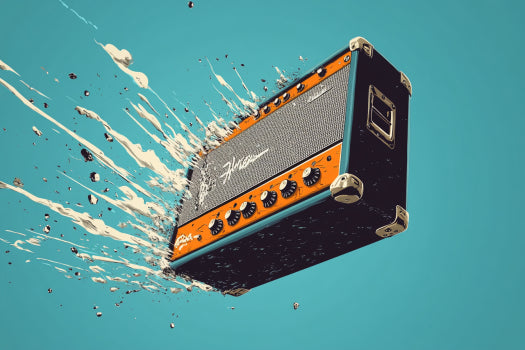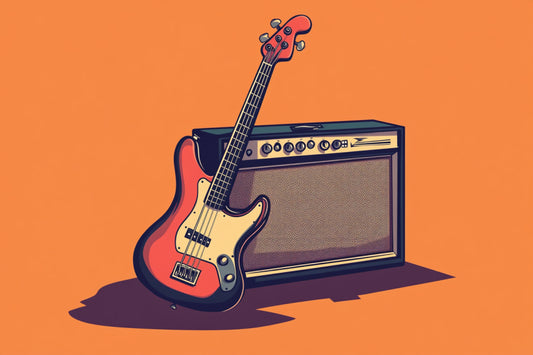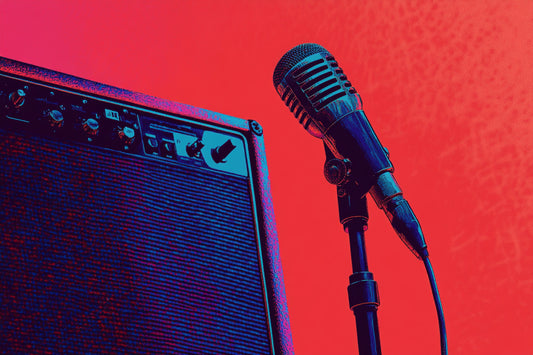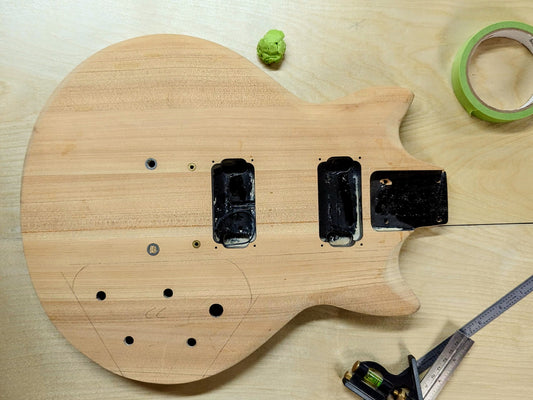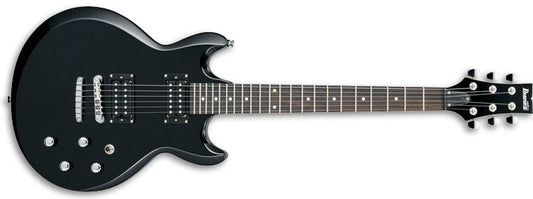
If you’ve ever been in the middle of a jam session and noticed a mysterious buzzing sound from your amp when you touch your guitar, you’re not alone. This can be frustrating and distracting, but the good news is that it’s usually fixable. In this article, we’ll explore the various reasons your amp might buzz, and offer up some practical solutions. Whether you’re a beginner musician or a seasoned pro, understanding these causes and fixes can help you enjoy a better, buzz-free playing experience.
Understanding the Buzz
Amp buzzing is an issue that many musicians encounter at some point. It’s that unwanted hum or buzz that gets louder when you touch your guitar strings or other metal parts. While some level of noise is usually normal, especially with high-gain settings, persistent or loud buzzing typically indicates a problem. Understanding whether the buzz is a minor nuisance or a sign of a deeper issue is the first step toward resolving it.
Possible Causes of Amp Buzzing
Grounding Issues
One of the most common causes of amp buzzing is grounding issues. This happens when there is an improper connection between the amp and the ground, causing electrical interference. If you touch a metal component on your guitar, and it suddenly starts or stops buzzing, a ground issue is usually the culprit.
Solutions:
- Check Ground Connections: Ensure all ground connections in your setup are secure. This includes the grounding in your amp, guitar, and any connected equipment. Start with your guitar - ground wires in electric guitars routinely work loose, and sometimes a twisted output jack can push wiring into positions it shouldn't be in!
- Some folks will say to use a "ground lift", which is ordinarily used as an adapter to make 3-prong cords work with 2-prong outlets. This is not a great idea. It might reduce the hum by isolating the ground loop, but it also keeps your amp from being truly grounded, which could be dangerous.
Electrical Interference

Electrical interference from other devices can also cause buzzing. Common culprits include fluorescent lights, dimmer switches, and other electronic devices nearby (...like cellphones).
Solutions:
- Relocate the Amp: Move your amp to a different location to see if the buzzing decreases. Sometimes, even a small change in position can make a big difference.
- Power Conditioner: Using a power conditioner can help to regulate your power on the supply side, potentially reducing interference and noise.
Instrument-Related Issues
Sometimes, there's a non-ground-specific issue within the instrument itself. Poor wiring or insufficient shielding in your guitar or bass often leads to unwanted noise.
Solutions:
- Inspect Wiring: Check the wiring inside your guitar for loose connections, poor solder joints, and switches or knobs that feel loose and sloppy. Any one of these issues could cause interference.
- Shielding: This is a big one. Improving the shielding inside your guitar’s electronics cavity can drastically reduce interference. This might involve adding copper tape or conductive paint. Unless your guitar was very expensive, chances are the shielding is pretty poor, and potentially ineffective (though not always).
Amp-Related Issues
Faulty cables, poor connections, or issues within the amp itself can also cause buzzing. This can be trickier to diagnose but is often related to wear and tear or manufacturing defects.
Solutions:
- Check and Replace Cables: Test your setup with different cables to identify any faulty ones. Quality cables can make a significant difference.
- Consult a Technician: If you suspect the issue is within the amp, it might be best to consult a professional technician for a thorough check-up and repair. Remember, amplifiers (especially tube amps) can potentially carry enough electricity to be lethal! Even after they have been unplugged!
Preventive Measures
To keep your amp and instrument in top condition and minimize buzzing issues, regular maintenance is crucial.
- Regular Inspections: Routinely check your cables, connections, and instrument wiring for any signs of wear or damage.
- Quality Equipment: Invest in high-quality cables, connectors, and accessories. An amp stand can also help reduce contact with the floor, minimizing interference.
- Clean Power Supply: Use a clean and stable power supply to ensure your equipment gets consistent voltage.
When to Seek Professional Help

While many buzzing issues can be resolved with the steps mentioned above, there are times when professional help is necessary. If you’ve tried troubleshooting and the buzzing persists, or if you notice any burnt smells, smoke, or other alarming signs, it’s best to consult a professional. A qualified technician can diagnose and fix more complex issues that might be beyond basic troubleshooting.

